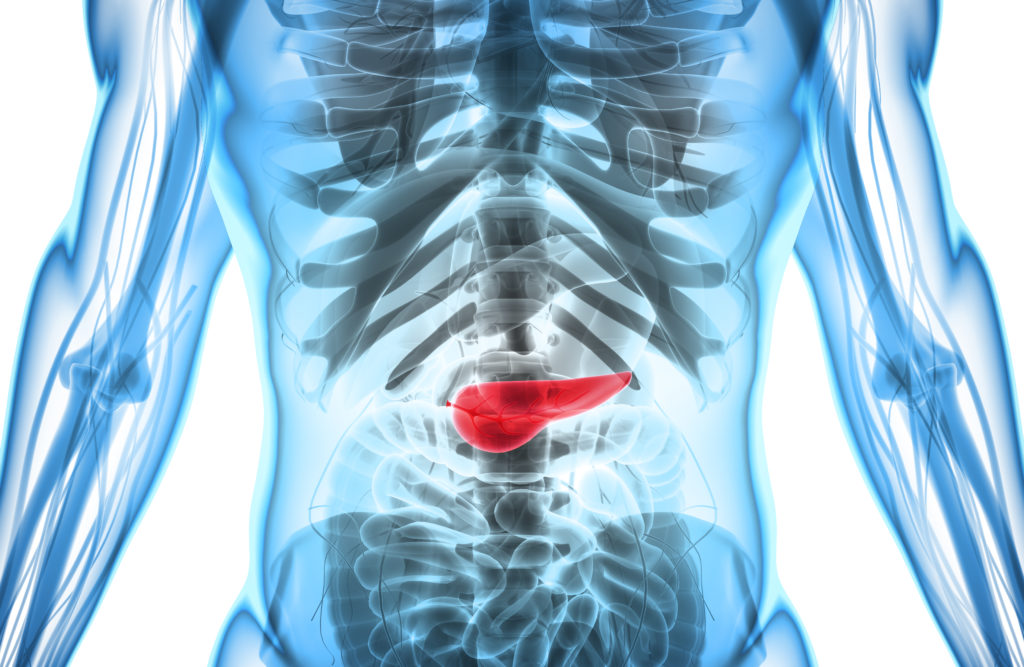
As one of the deadliest cancers, pancreatic cancer is the fourth most common cause of cancer deaths in the United States. Pancreatic cancer often can’t be seen or felt by doctors during a routine physical exam because of its location in the body. And sometimes, patients may not have symptoms until the cancer has spread to other organs.
On November 21, 2019, people from around the globe will come together to unite in the fight against this cancer as part of World Pancreatic Cancer Day. On this day and throughout the month of November we want to help raise awareness of pancreatic cancer by educating as many people as possible.
Let’s raise awareness about the symptoms and risks of the disease to better help patients and their loved ones fight this cancer.
How the Pancreas Works
A tiny gland in the abdomen between the stomach and intestines, the pancreas is made mostly of exocrine cells that make digestive enzymes. The pancreas also makes endocrine (islet) cells that are responsible for hormones such as insulin, which controls blood sugar levels.
When pancreatic cancer occurs, the cells in the pancreas become damaged and grow out of control.
What are the risk factors of pancreatic cancer?
There are several risk factors for pancreatic cancer, including:
- Smoking
- Obesity
- Those with diabetes
- Patients with chronic pancreatitis
- Family history of the disease
- African-Americans are more likely to be diagnosed with the disease
- More women than men are diagnosed with pancreatic cancer
Pancreatic Cancer Signs and Symptoms
Sometimes people with pancreatic cancer experience no symptoms but other times, symptoms can start once the disease has progressed. If symptoms do appear, they may include:
- Loss of appetite and accompanying weight loss
- Pain in the belly or upper back
- Yellowish skin, eyes and dark urine
- Stomach problems such as indigestion, nausea and vomiting
- Extreme tiredness
Getting Tested for Pancreatic Cancer
If you or a loved one is at risk for pancreatic cancer, or is experiencing any of the symptoms above, it is important to contact a doctor to get tested. If pancreatic cancer is suspected, a doctor may perform several tests to make a diagnosis.
These tests may include the use of imaging such as ultrasound, MRI, CT scan, or several other common types of diagnostic tools.
Submit an online appointment request or call 310-449-5206 to request an appointment with our specialists at the Saint John’s Cancer Institute this Pancreatic Cancer Awareness Month. We offer an internationally recognized comprehensive program that includes minimally invasive surgery and personalized care.

